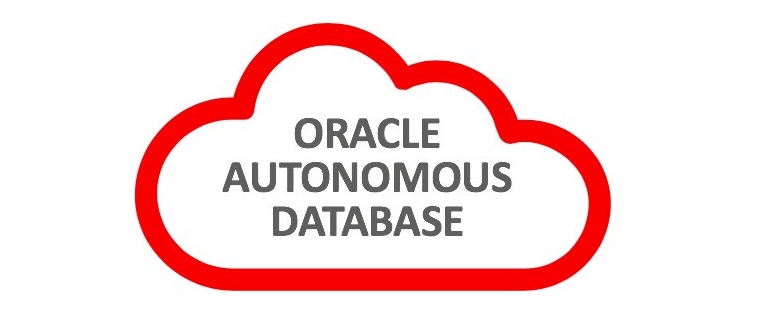Cloud computing is changing business practices and simplifying the operation of data centers. Apparently, when it comes to moving critical database resources to the cloud, many IT managers are cautious. They are familiar with the limits of common commodity cloud solutions or not aware of apt solutions. It mainly consists of fragmented hardware and software offerings that have to be configured manually. IT professionals need to understand how to build their own platform on their service provider’s infrastructure, migrate data, and then sync everything with apps and data that are managed locally.
The database has always been a forte for Oracle. When Larry Ellison (Chairman of Oracle Operations and CTO) announced the vision of the world’s first autonomous database at Oracle OpenWorld 17, it affirmed that it is not easy to take Oracle head-to-head in the database services.
“This is the most important thing we have done in a long time,” said Ellison. “Automation does it all. We can guarantee 99.995 percent availability and less than 30 minutes of planned or unplanned downtime.”
Oracle Autonomous Database
AI technology is transforming enterprise computing by changing the way businesses receive, manage, and protect business data. By 2025, Oracle predicts that 90% of all applications and services will contain AI at a certain level and that more than half of the company’s data will be managed autonomously. Oracle Autonomous Database is a completely new category of software based on machine learning.
An autonomous database is a cloud database that uses ML to automate database optimization, security, backup, updates, and other routine administrative tasks traditionally performed by database administrators. Unlike traditional databases, autonomous databases perform all of these tasks but do not require human intervention.
The Oracle Autonomous Data Warehouse Cloud is a next-generation cloud service based on Oracle Autonomous Database self-driving technology that delivers machine learning with unprecedented performance, reliability, and ease of deployment for data warehouses. Provide. Oracle Autonomous Database Cloud is supported by the next generation of Oracle Database 18c. Oracle Database 18c offers groundbreaking automation functions and significantly improved OLTP, analysis, and integration technologies.
This database management system is available in two proprietary products.
• With Oracle Autonomous Data Warehouse, you can deploy new data marts, data lakes, and data warehouses in the cloud, or move existing data marts from your data center to the cloud.
• Oracle Autonomous Transaction Processing was developed for high-performance, business-critical databases, mixed workloads and OLTP workloads.
Unique functions of Oracle’s Autonomous Database
• Comprehensive data management that supports both structured and unstructured data as well as mixed workloads such as OLTP (online transaction processing) and analytics.
• Unmatched performance of database workloads that can be deployed to the Oracle Database Exadata Cloud Service for exceptional performance – ideal for Big Data and Internet of Things applications.
• If you move your application to the cloud, you can easily migrate your application without code changes, which saves investment and costly recoding costs.
• Familiar management tools that provide full visibility of software, database, and applications.
• Industry-leading innovations such as portable plug-in databases, in-memory technology for performance, and systems optimized for mission-critical workloads.
• Deployment options for migrating workloads between private cloud, Oracle public cloud, and Oracle cloud in hybrid customer environments with the same products, architecture, and capabilities in all environments.
• Excellent protection through comprehensive security from Oracle. Keep your information and Oracle Data safe, including encrypting data at rest and in transit.
• Autonomous operations, including patching, updating, and optimizing. All routine database maintenance tasks are performed while the database management system is running and do not require human intervention.
Most common use cases for Oracle’s Autonomous Database
Application development and testing
DevTest is one of the most important use cases for the public cloud. Many companies form a DevOps team, in which developers work with operating personnel to build, test, troubleshoot, and improve applications as part of a continuous process.
Users can use free tools on top of the Oracle Autonomous Database such as Oracle Application Express, Oracle REST Data Services, Oracle SQL Developer Web, and Oracle Developer Cloud Service.
Sandbox environment
Users can leverage Oracle Autonomous Database as a staging environment to test the upgrade process or to try out new database features such as portable tablespaces and pluggable databases. If you make an error, you can simply delete the database instance and start over.
Data warehouse
Oracle Autonomous Database is ideal for the data warehouse workloads. It is particularly suitable when different or geographically distributed teams need access to analysis services. This reduces the cost and complexity of managing the infrastructure and allows analysts to focus on extracting value from the data. By inserting the data warehouse into the cloud, it is accessible to users from anywhere, making it easy for the entire team to use data warehouse resources.
Source: cloudmanagementinsider.com




0 comments:
Post a Comment